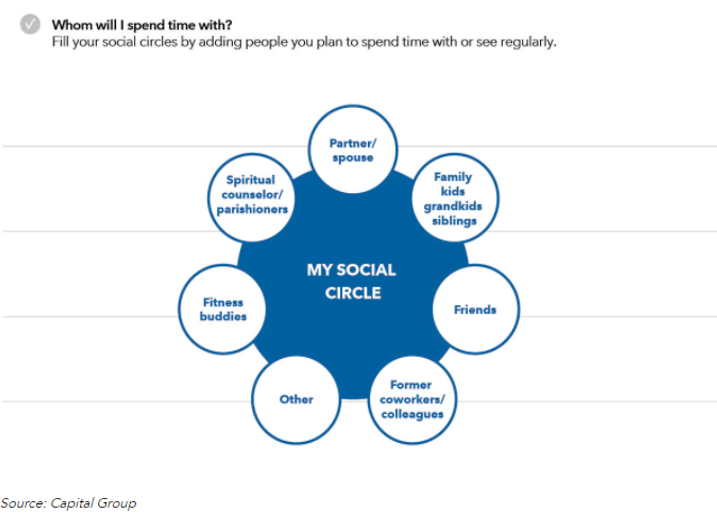Isolation is not healthy. If you watched any of Netflix’s blue zone documentary from expert Dan Buettner, then you know that social interaction is a major component of living a long and healthy life. And it needs to be regular, not sporadic.
Loneliness drives up health costs significantly and gives rise to a host of mental health challenges. According to Cigna’s most recent survey, loneliness affects 61% of workers. I can only guess that those numbers are higher for men as women tend to do a much better job of maintaining their social relationships. I see in my everyday. So if you are male, please examine the efforts you put into your social circles.
Just like an investment portfolio, your Social Portfolio gets stronger and more resilient as your social diversity picks up. Diversification and balance are key. So that gives rise to a question: What are you doing now to battle the lifelong risk of staying connected?
While children keep us healthy and connected to other adults while they are growing up, they all eventually leave. Yes, they do eventually leave, for those with 20-somethings still in the house. So take children out of the equation. It will allow you to be better prepared for that potential void when the train leaves the station.
Here’s an exercise. Try to identify 3-5 friends in a social circle (example below). If you can’t identify at least three, then maybe identify activities and places where the opportunity to foster a new friendship in that category might arise, such as hanging around the local pickleball court, taking a class on woodworking, or attending your local winetasting events. Jot down where there are opportunities for growth in a particular circle. I just updated mine this morning. Here are a few of my circles: Fishing Crew, Coaching Friends, Former Coworkers, Paddleball Crew.

Those groups sitting in the coffee shops every morning have something figured out. You may not be able to do it every day or even every week, yet starting or joining a group can be good for your health. A few friends and I started an “Old Man Coffee” text string and breakfast club. We try to get together once per week during the Winter. It’s a good start to a Thursday or Friday that keeps me connected to them and their families. So I am thinking about how to get more intentional with the people and activities in my life. Tuesday night baseball? Probably not. A new pickleball league? Maybe. Taking that trip with new friends? You betcha.
As we age, ‘chance interractions’ with friends and potential friends decreases significantly. Intentional interactions, while requiring more effort, can increase your likelihood of maintaining social connections. Think back to when you were 30, heading off to weddings, weekend adventures, friend trips,…Maintaining a social network was much easier. Did that slow down over the next 15-20 years? I’d say there is a good likelihood it did. So if you take one thing from this post, make sure you understand that Maintaining Social Connections as You Age takes Extra Effort, and it’s healthy and smart to put in that effort. Just like a strong investment portfolio, a diversified mix of friends is a recipe for continued health.



